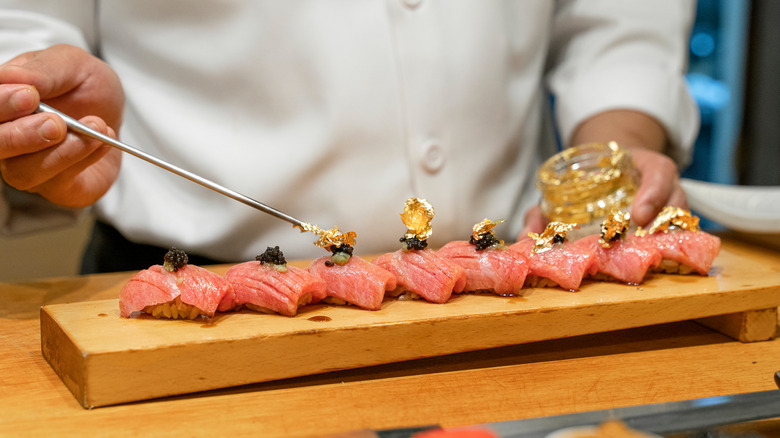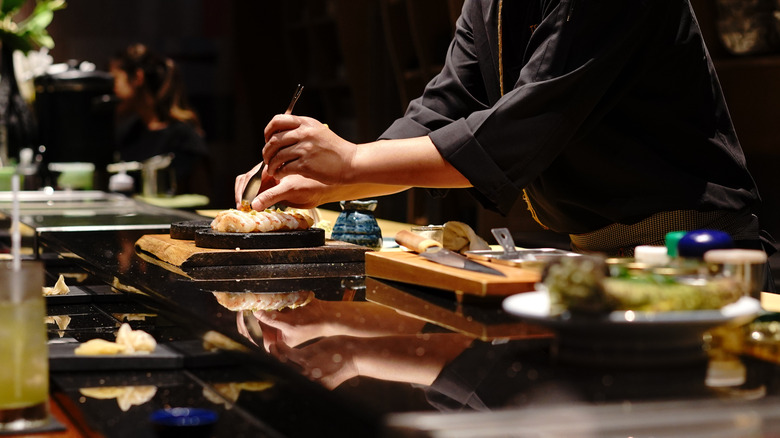Why Sushi Tastes Better At A Restaurant Than At Home
Making homemade sushi might be a fun weekend dinner or date night activity, but no matter how many times you practice making the perfect rolls at home, they just can't match up to what you get at a restaurant.
The first sushi restaurants appeared in the U.S. in 1963, per Mental Floss. They were initially met with some skepticism regarding Americans' interest in raw fish. That wariness has now worn off though, and according to IBIS World, there are nearly 16,000 sushi restaurants in the United States today.
Sushi has become so popular that different areas of the country have their own preferences for their favorite roll. In New Jersey, the spider roll reigns supreme, while in Texas, the avocado roll is particularly popular (via The Loupe). Overall, though, the most popular roll in the U.S. is the California roll. The California roll is a simple combination of real or imitation crab, avocado, and cucumber, wrapped in nori and sushi rice, so is it really that hard to recreate at home?
RB Sushi says that just because it doesn't take a lot of ingredients to make some types of sushi, that doesn't mean it's easy. For those that know how difficult it is to master the delicate art of balancing sushi ingredients, they don't even bother trying to make it at home.
Mastering the art of sushi
Sushi tastes better at a restaurant because sushi chefs go through a lot of training to earn their spot behind the counter. According to Osaka Japanese Bistro, a master sushi chef is referred to as an itamae, and it can take more than ten years of training to earn this title. Itamae are revered for their skill and mastery of every step of the sushi-making process, including making the perfect rice, preparing each type of fish, mixing sauces, and even handling the customers. Their training helps them develop the creativity to plan a unique and memorable sushi menu as well.
Kobe Jones says that this traditional path is still the most typical for those seeking to learn the art of sushi. There are some shortened courses and even intensives for those who are itching to hop behind the sushi counter. However, Insider reports that these intensives can be quite brutal, and may drive students to tears.
Another reason restaurant sushi is better than homemade is the superior ingredients. RB Sushi points out that sushi restaurants often have access to the highest quality fish and real wasabi roots, which have more flavor and are less spicy than imitation wasabi. Most restaurants and grocery stores will sell colored horseradish as wasabi because the real root is difficult to grow and expensive.
So the next time you're craving sushi, save yourself the effort and let the trained professionals make it for you.

